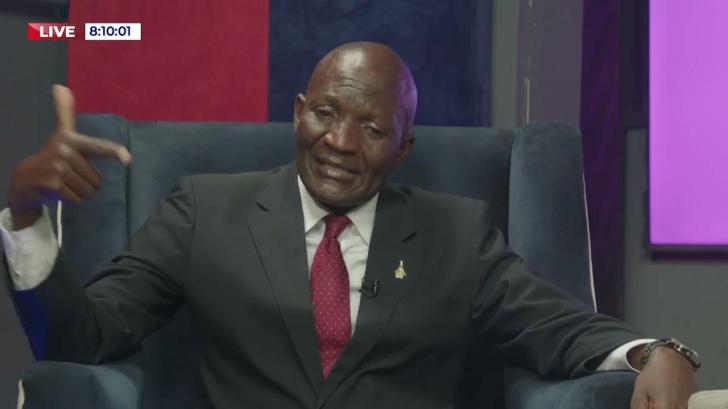News / National
'West seeks to regain control of Zimbabwe's levers of power'
08 Sep 2024 at 08:42hrs |
0 Views

Martin Zharare, executive director of Citizens Against Economic Sanctions (CAES), has likened Zimbabwe's current situation to a "Fourth Chimurenga," describing it as an economic war waged by the West, particularly through sanctions.
According to Zharare, these sanctions, imposed in response to Zimbabwe's land redistribution policies post-independence, are part of a broader strategy by Western powers to regain control of Zimbabwe's resources and halt its economic growth. He urged locals to understand this narrative and defend the country from external interference.
The sanctions, initially implemented in 2001, targeted Zimbabwe's key officials and restricted international trade and finance.
Zharare highlighted that these measures are not just punitive but are part of a deliberate effort by the US and UK to prevent Zimbabwe's economic development. He claimed that the West is particularly interested in regaining control over Zimbabwe's land, a resource that has been central to the country's post-colonial identity and struggles.
Despite the sanctions, Zharare expressed optimism about Zimbabwe's resilience, noting positive developments in infrastructure, agriculture, and the business sector.
He argued that Zimbabwe is making progress despite the challenges imposed by the sanctions and encouraged citizens to remain steadfast in defending the country's sovereignty. He also pointed out that Zimbabwe's ability to withstand the economic pressure is a testament to its strength.
Zharare also accused the West of using media, particularly journalists, to perpetuate a negative narrative about Zimbabwe.
He claimed that the sanctions-imposing countries use their media influence to portray Zimbabwe as a failing state, which in turn discourages investment and tarnishes the country's image internationally. However, he urged Zimbabweans to counter this by promoting a positive narrative of the country's progress and resilience.
In response to the sanctions, Zimbabwe has undertaken various initiatives, including international lobbying, diplomatic outreach, and public awareness campaigns like "Anti-Sanctions Day."
Additionally, the country has sought stronger partnerships with non-Western nations, such as China, Russia, and India, to diversify its economic relations and reduce dependence on Western powers. Through these efforts, Zimbabwe aims to raise awareness about the sanctions' impact and advocate for their removal while fostering national development.
According to Zharare, these sanctions, imposed in response to Zimbabwe's land redistribution policies post-independence, are part of a broader strategy by Western powers to regain control of Zimbabwe's resources and halt its economic growth. He urged locals to understand this narrative and defend the country from external interference.
The sanctions, initially implemented in 2001, targeted Zimbabwe's key officials and restricted international trade and finance.
Zharare highlighted that these measures are not just punitive but are part of a deliberate effort by the US and UK to prevent Zimbabwe's economic development. He claimed that the West is particularly interested in regaining control over Zimbabwe's land, a resource that has been central to the country's post-colonial identity and struggles.
Despite the sanctions, Zharare expressed optimism about Zimbabwe's resilience, noting positive developments in infrastructure, agriculture, and the business sector.
Zharare also accused the West of using media, particularly journalists, to perpetuate a negative narrative about Zimbabwe.
He claimed that the sanctions-imposing countries use their media influence to portray Zimbabwe as a failing state, which in turn discourages investment and tarnishes the country's image internationally. However, he urged Zimbabweans to counter this by promoting a positive narrative of the country's progress and resilience.
In response to the sanctions, Zimbabwe has undertaken various initiatives, including international lobbying, diplomatic outreach, and public awareness campaigns like "Anti-Sanctions Day."
Additionally, the country has sought stronger partnerships with non-Western nations, such as China, Russia, and India, to diversify its economic relations and reduce dependence on Western powers. Through these efforts, Zimbabwe aims to raise awareness about the sanctions' impact and advocate for their removal while fostering national development.
Source - NewZimbabwe
Join the discussion
Loading comments…




































